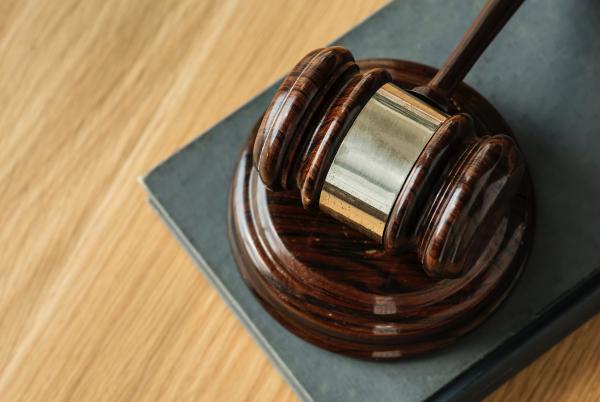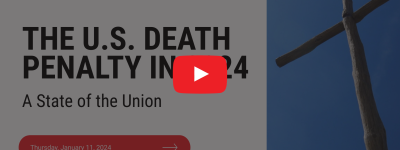By: Emma Tacke
Get the latest death penalty and criminal justice updates from April 2020. If you haven't already, be sure to sign up for CMN's newsletter, Justice & Mercy Monthly, to stay informed about upcoming opportunities for action.
1. Federal Death Penalty Litigation
On April 7, 2020, a divided panel of judges from the District of Columbia Circuit Court of Appeals ruled on a preliminary injunction blocking federal executions which was put in place in December 2019. As a result, attorneys for federal death row inmates are continuing litigation to challenge the federal government's efforts to restart executions for the first time in over 16 years.

CMN is monitoring the situation regarding the resumption in federal executions and assessing opportunities for punctuated collective action. Learn more.
2. Supreme Court Rules on Constitutionality of Non-Unanimous Juries
On April 20, 2020, in a 6-3 decision, the U.S. Supreme Court ruled in Ramos v. Louisiana that the U.S. Constitution requires unanimous jury verdicts to convict defendants in state criminal courts. The case brought forward the question of whether the Sixth Amendment’s requirement of unanimous jury verdicts for convictions in federal court cases applied to state convictions as well.
In a statement, Ben Cohen, the attorney representing Evangelisto Ramos, said:
“We are heartened that the Court has held, once and for all, that the promise of the Sixth Amendment fully applies in Louisiana, rejecting any concept of second-class justice. In light of the COVID-19 crisis, it is essential that prisoners who are wrongfully incarcerated be given the chance for release as soon as possible.” (The Washington Post)
Sherrilyn Ifill, president and director-counsel of the NAACP Legal Defense and Education Fund stated:
“The reality of historical and ongoing racial discrimination makes unanimous juries particularly essential to the legitimacy of trials in the American justice system. The Supreme Court’s decision today marks a step forward in the long road to ensuring an unbiased jury system, which is essential for protecting our democracy.” (NAACP)
 3. Coronavirus Stalls U.S. Executions and Death Penalty Litigation
3. Coronavirus Stalls U.S. Executions and Death Penalty Litigation
As COVID-19 continues to disrupt the daily lives and safety of people throughout the world, one light in the darkness has been the stalling of executions in the United States. Three out of the four scheduled executions in March were either rescheduled or given a 60-day stay. No executions were carried out in April.
Execution procedures require people to gather together (prison staff, spiritual advisors, attorneys, victims' family members, inmate relatives, medical personnel, media witnesses, etc.) in close quarters, heightening the risk of infection.
Three men are currently scheduled for execution in May, but as the situation with COVID-19 plays out, it remains doubtful as to whether these executions will be carried out.
You can be notified of advocacy opportunities for upcoming executions through CMN's Mercy in Action Project. Sign up here.
As social distancing measures continue to limit in-person interactions throughout the course of the coronavirus pandemic, many court deadlines and procedures have also been pushed back or suspended, raising questions about what the delays might mean for pending death penalty cases down the road.
For attorneys with clients on death row, clemency petitions require many hours of staff time, face-to-face interviews, and travel — all things that are nearly impossible with social distancing measures in place.
It stands to reason that these backlogs in death penalty proceedings will lead to an expedited schedule of executions and capital litigation in the weeks and months after social distancing measures are relaxed.
These uncertain times require our continued vigilance.



